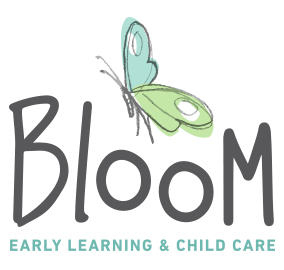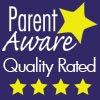
Today marks the beginning of something new for Bloom Early Learning with the launch of our blog, “Bloom So Bright”. We’ve chosen to begin by talking about The Virtues Project which is a very important tool in our curriculum at Bloom. Our blog will focus on sharing tips, tools and resources to help you identify and use developmentally appropriate practices to build social and academic success with the little ones in your life.
Bloom Early Learning’s Virtues Project emphasizes basic values and encourages children to find virtues within themselves and use them as they interact within their world. A new virtue is introduced monthly through experiences like puppet shows and stories and demonstrated throughout each school day. January’s virtue focused on celebrating our differences.
We hope you enjoy reading about what our children are learning at Bloom and invite you to stay tuned for more relevant topics in the area of early learning.
Rachelle Holm, M.A.
Executive Director
Differences? We Celebrate Them at Bloom!
 Teaching early-age children to appreciate our differences and similarities enables children to become successful, academically and socially. January’s virtue focused on mental, physical, cultural, racial or religious differences. Learning and celebrating our differences and similarities can be fun, as early-age children learn through play.
Teaching early-age children to appreciate our differences and similarities enables children to become successful, academically and socially. January’s virtue focused on mental, physical, cultural, racial or religious differences. Learning and celebrating our differences and similarities can be fun, as early-age children learn through play.
Opportunities to notice differences start with things that are familiar to and important to children. An easy example is where the children live. Children may live in an apartment, a trailer or a house, for example. Some children may have cats and dogs while others do not. Attire could be different from family to family. Some children may have mothers that wear hijabs, conservative clothing or certain other head-coverings. These are all great ways to notice differences.
Celebrating Our Similarities Too
Yet children also experience similarities among others they play with, such as enjoying the slides or swings on the playground or liking the same books, videos or foods as others. Point these out and talk about it in ways that affirm similarities.
“By celebrating the similarities and differences of others, we help build children’s acceptance for all people,” said Deborah Ottman, Director – University of Minnesota’s Online Professional Development / Social Emotional Program, and Bloom Board Member. “This is what makes our communities stronger.”
Ways You Can Inspire a Child’s Appreciation of Uniqueness

Ottman provides tips for parents to help them develop their child’s appreciation of and celebrate differences in others.
- Be open to having hard conversations. Children may ask questions about others who are different. Try to answer these questions, even if you find them difficult. If you fail to answer, your child might shy away from asking similar questions, believing that the question is off-limits. Children’s books and videos featuring other children from diverse backgrounds, family structures and developmental abilities are a great way to introduce this topic. Talk about this as you read the book or watch a video together.
- Act as a role model for your child. Interact with people who are from diverse backgrounds. Show that you are respectful and welcoming to everyone, from a person with disabilities to a non-English speaker to a person with a different skin color than yours. Seek and build friendships of your own. Make sure you tell your child something positive you noticed about each person you meet. Ask your child if there was anything they noticed and liked about that person. By doing so, you can start a great discussion! By telling your child about a diverse person’s positive traits and asking your child to share a person’s character which they like, you could start a great discussion!
- Seek age-appropriate events that celebrate diverse people, holidays and culture. Encourage learning about individuals, cultures, traditions and holiday celebrations different than your own. For example, seek age-appropriate events celebrating Juneteenth or Martin Luther King Day on Monday, Jan. 16. Take small steps with your child, too! For instance, if you and your child are visiting the park or library, and see another child who is racially or culturally diverse, encourage your child to play with or talk to that child. You might strike up a conversation with that child’s care provider or parent. Provide a learning opportunity by showing your child that you enjoy and appreciate all people.
- Encourage anti-bias attitudes in areas such as culture, ethnicity and gender. Teach respect and appreciation for all people. And by fostering inclusivity, research shows that all children thrive in their social, emotional and academic development. Activities that might be familiar to children – reading books, eating different foods, playing with children from diverse backgrounds and participating in celebrations of special days – may open the door to providing encouragement to your child and acceptance of others.
You are your child’s first and most important teacher, according to Ottman.
“Children absorb behaviors like a sponge,” she explained. “They notice them; what we say, our tone or how we say it with our verbal and non-verbal behaviors. Ask yourself; “How do we respond to differences? Your cues act as a powerful teacher!”
Resources
Bloom offers educational or informational sessions on child development and health. We encourage you to look at the following information sources for valuable insight.
Find resources to inspire children to appreciate differences and similarities
NAEYC – Research-based resources, tips and ideas for families – from child development to reading, writing music, math and more
Help Me Grow Minnesota – Information to help young children develop, learn and grow
Zero to Three – Resources for partners parenting infants through toddler-age children, seeking information about early development, well-being and early learning
The Creative Curriculum® for Preschool, 6th Edition | ECLKC – The curriculum provides a set of resources to support active learning through a variety of learning experiences, according to the ECLKC website
Support Bloom
Bloom Early Learning has been recognized with awards, earning one of the highest NAEYC scores which measures best practices through an accreditation process. In addition, Bloom has been voted as the Best Preschool and Best Child Care in Plymouth and Wayzata for the fifth year in a row (including 2022) by Sun Sailor readers.
You can support Bloom through advocacy, food shelf assistance, volunteer activities and financial donations.

Irene Connors donates her time grant writing and blogging for social service agencies. She served as an information officer/communications specialist for most of her career at the Minnesota Department of Employment and Economic Development (DEED). In addition, she had a role in the Workforce Development unit in which she assisted job seekers find meaningful careers. Prior to joining DEED, she was employed at Allina Health as a communications coordinator and as an economist at the U.S. Department of Labor in Washington, D.C. She earned a bachelor’s degree from the University of Virginia and completed graduate work in professional communication at the University of St. Thomas (Twin Cities).








